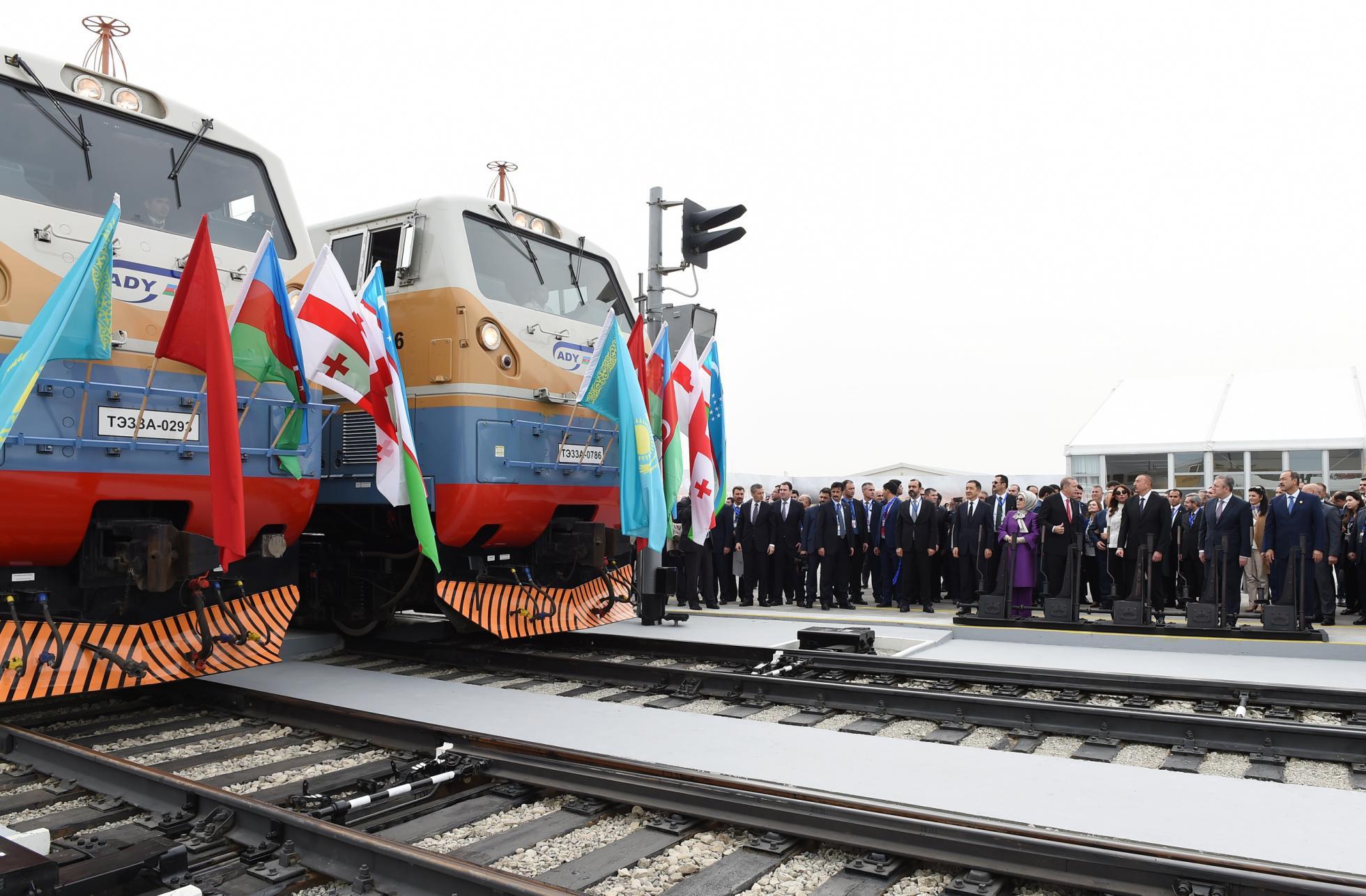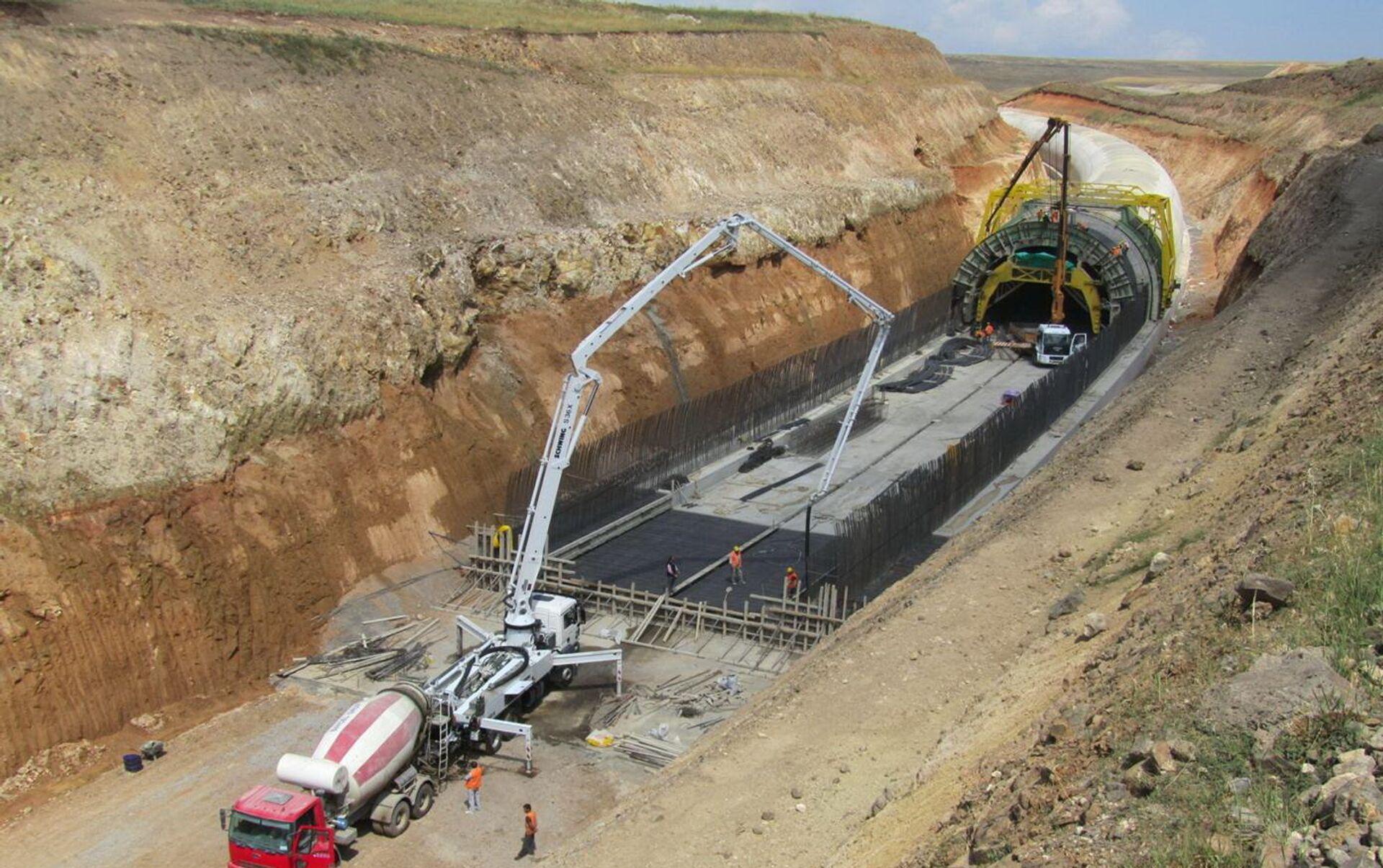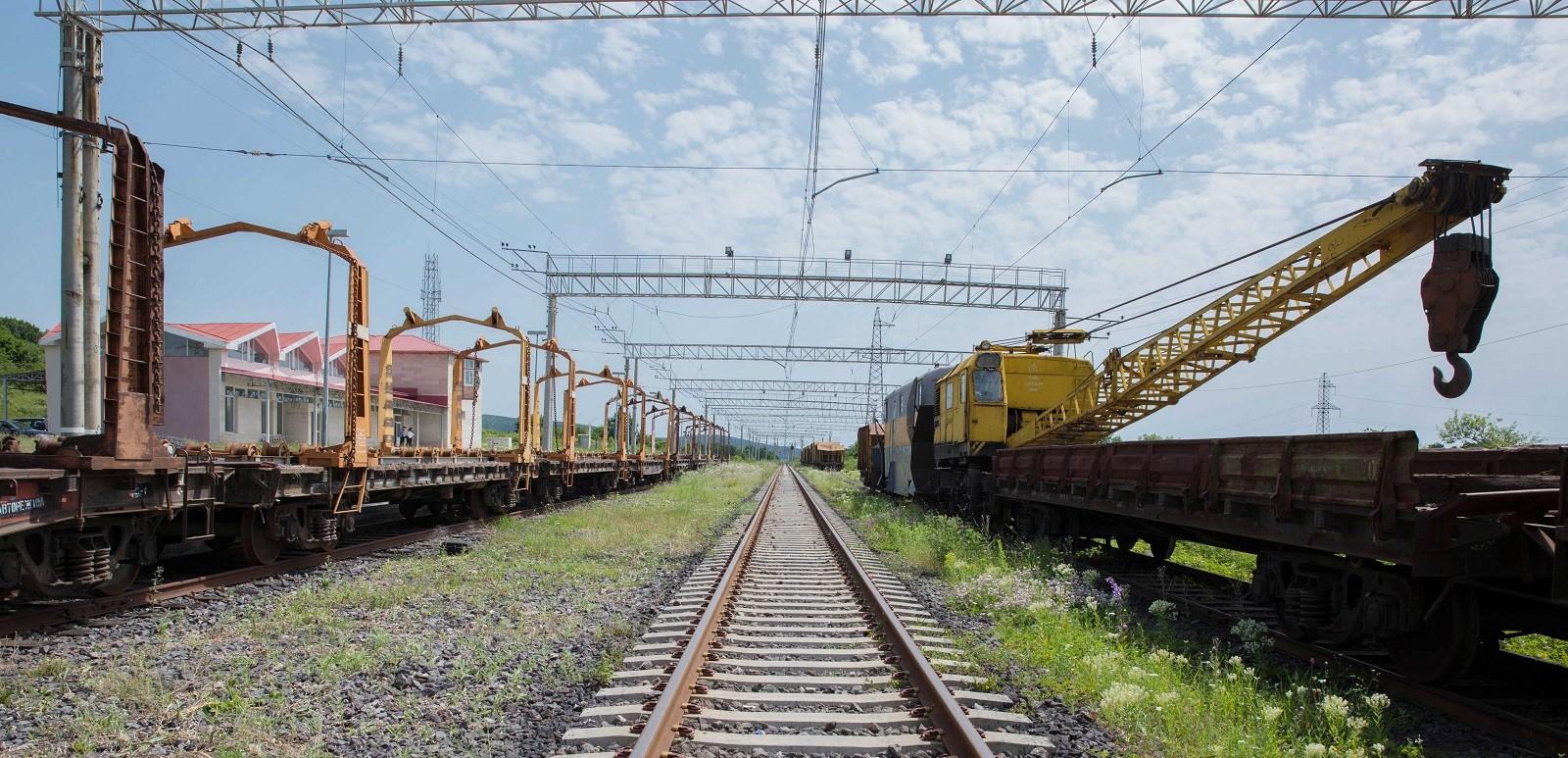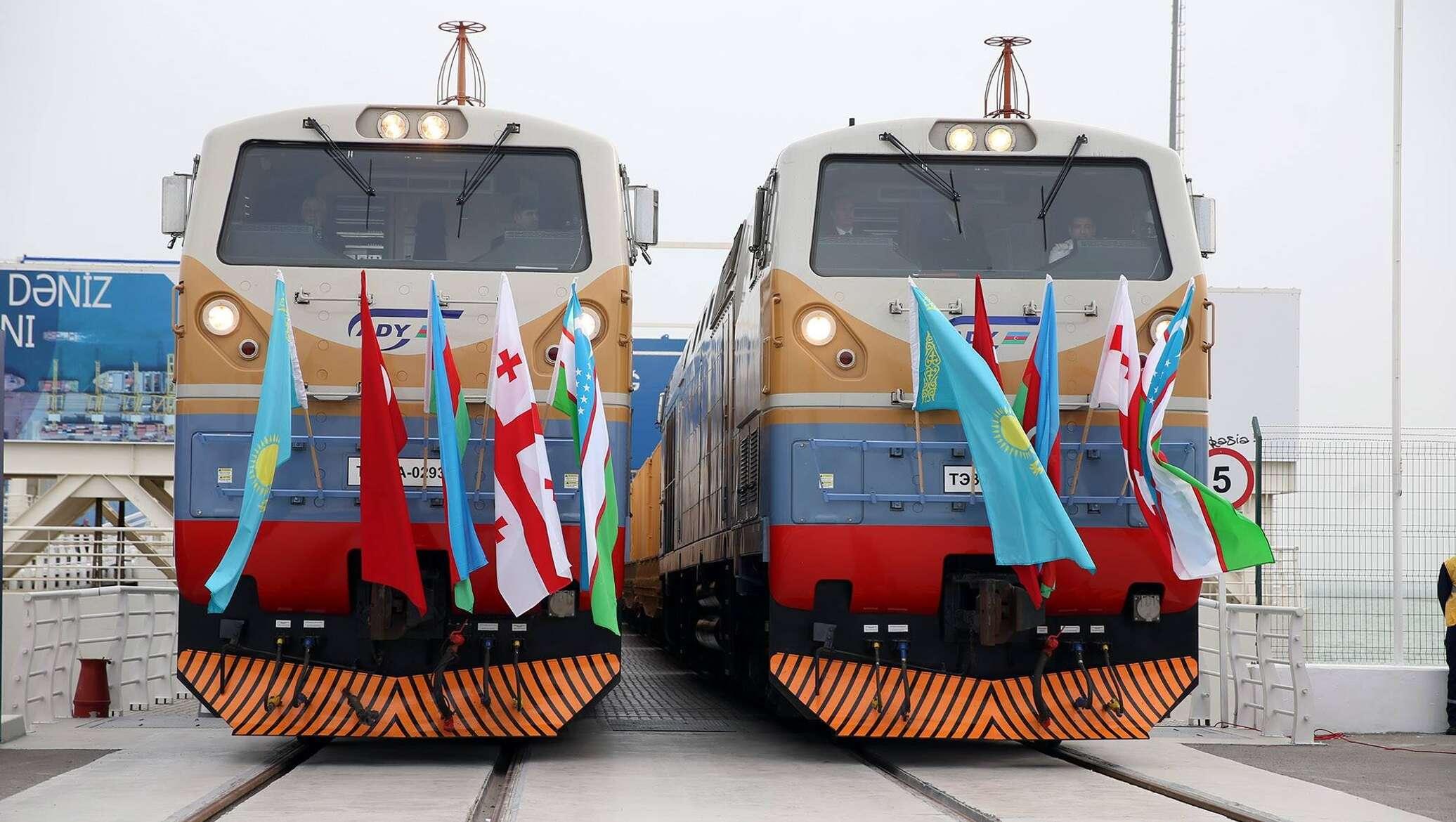Baku-Tbilisi-Kars: Connecting three allies at Asia's gateway to Europe Modernisation of key transport link underway
Azerbaijan and its partners in developing the infrastructure of the Middle Corridor have completed 95 per cent of the work on modernising the Georgian section of the Baku-Tbilisi-Kars (BTK) Railway. According to the information recently published by the Azerbaijan Railways CJSC, the works, which were started last year and are financed by our country, are expected to be completed by the end of April this year. Reconstruction of the BTK will shorten the time of train movement and accelerate the cargo handling process, which will increase the steel network capacity fivefold. An Azerbaijani-Georgian joint venture (JV) to manage the rehabilitated railway will be established in the near future.
Situated at the crossroads of civilisations and trade routes, Azerbaijan has for centuries been a key transport hub in vast Eurasia.
Today, the importance of the Middle Corridor has increased significantly, and the development of the transit and logistics potential of Azerbaijan and its regional neighbours takes on a special role against the backdrop of a new round of geopolitical changes. In this regard, the main organisers of the Trans-Caspian International Transport Route (TITR) - Baku and Astana - have developed a corridor development roadmap for 2022-2027.
For the second year in a row, synchronised work on eliminating bottlenecks in the Trans-Caspian corridor has been carried out within the framework of this document. It includes the reconstruction of railroads, increasing the capacity of the ports of Aktau and Alat, unification of border, customs, tariff and other regulations and administrative mechanisms, implementation of a project to digitise the logistics of the line, and so on.
The approval of the law on the intergovernmental agreement "On primary information exchange for simplification of transit customs procedures within the BTK project" by the President of Azerbaijan Ilham Aliyev on June 21, 2023, was the most important step in accelerating the implementation of this agreement. Under the agreement, Baku, Tbilisi and Ankara will introduce mechanisms for exchanging customs risk analyses, integrate electronic data exchange systems, agree on mutual recognition of customs seals, the results of joint inspections, pay special attention to goods requiring rapid transport, etc.
As a result of the integration of customs risk and access to analysis for all three countries, there will be no need for duplication of control measures, which will significantly reduce the time lost in the transit of goods through the borders. In addition, preliminary agreements have been reached on the use of a single transit tariff for shipments via the BTK.

The BTK railway line with a total length of 826 km was commissioned on 30 October 2017, but according to the Turkish Ministry of Transport, the total volume of freight traffic from the start of this line's operation until May 2023 was about 2.4 million tonnes of cargo. This means that during the five and a half years of operation, an average of about half a million tonnes of freight has been handled annually. Such a pace cannot be considered sufficient, especially considering the design capacity of this branch line, which is estimated at three to six million tonnes of freight per year. The fact that the BTK is not fully utilised is proven by another fact: the cost of rail transport is clearly lower than truck transshipment, but in recent years about three-quarters of land freight between Türkiye and Azerbaijan is still transported by road.
Experts attribute the low use of the BTK to a number of problems and bottlenecks in this railway corridor's infrastructure; in particular, delivering goods along the BTK from Baku to Kars takes over 70 hours. Increasing the speed of trains within Georgia required completing the construction of tracks, power and other infrastructure on the Marabda-Turkish border stretch. To this end, the logistics terminals in Akhalkalaki, Georgia, and Kars, Türkiye, should also be commissioned. These hubs will help to increase the speed of handling of goods transported via the BTK.

Early last year, the Azerbaijani government began financing work (over $100 million has been allocated) to expand bottlenecks and increase capacity on the 183-kilometre Marabda-Kartsakhi section of the BTK in Georgia in order to address the existing imbalance under the roadmap. The railway chiefs of Azerbaijan, Georgia and Türkiye - Rovshan Rustamov, David Peradze and Veysi Kurt - recently inspected the modernisation work on the Georgian section.
"About 95 per cent of the works on the modernisation of the BTK railway line and the increase of its throughput capacity have been completed: out of five sections where reconstruction was carried out, the works have been fully completed in three sections, and the entire volume of the project works is planned to be completed in the next two months," said Rovshan Rustamov, Chairman of Azerbaijan Railways CJSC.
"Our goal is to make this mainline the most attractive segment of the Middle Corridor. We want to increase the volume of freight traffic on the BTK from 1 to 5 million tonnes per year, including by increasing the transhipment of transit cargo," he added.

The scope of works carried out during the year on the Marabda - Kartsakhi section of the BTK is truly remarkable, particularly considering the very challenging terrain through mountains and forests. Work on the five stages of modernisation is being carried out to a high standard, using new technologies and modern equipment from Europe, according to Veysi Kurt, head of the Turkish Railways Administration.
Catenaries have been installed on several sections of the railway line. Signalling, centralisation, and interlocking systems have also been put into operation. Work on several stations and passenger platforms has been completed, including the installation of snow fences and tunnels. Additionally, traction substations have been built to support the operation of the railway line.
Reconstruction of tracks on the Akhalkalaki-Kartsakhi section has been completed (tunnel works are still ongoing), and repairs to four snow guard galleries on the Tsalka-Akhalkalaki line are underway. Full completion of all planned works on these BTK sections, including the completion of the 110-hectare Akhalkalaki complex, is expected in March-April this year.
The Georgian section of the BTK runs at some 2,400 metres above sea level, and during the autumn and winter months all roads in the region are snow-covered and temperatures drop to minus 30 degrees Celsius. Modernisation will therefore make rail a year-round means of local and international logistics.
According to Rovshan Rustamov, Azerbaijani railway head, the modernisation of the Marabda-Kartsakhi section, which is the most difficult in terms of relief, will play a crucial role in the delivery of overland cargo from China and Central Asian countries to Türkiye and Europe in the shortest possible time.
The establishment of a joint venture for the management of the railway BTK is also envisaged under the relevant Azerbaijani-Georgian intergovernmental agreement. Normative acts have already been prepared, and the signing of the agreement on the establishment of the joint venture, in which the parties will each have a 50 per cent stake, is expected in the near future. "The JV will regulate freight tariffs, attract new cargoes and transhippers, ensure effective management of all BTK operations," Rovshan Rustamov said.

Notably, Ankara has shown much greater interest in the BTK trunk line. As part of the construction of a high-speed railway in Türkiye, it is planned to build a branch line from Erköy station to Kayseri. This branch line will extend to Erzincan, Erzurum and Kars. In this way, Kars, where the BTK branch line is docked, will become a railway junction, a passenger and freight hub of a strategic corridor of international importance, which has already been dubbed the "Iron Silk Road" in Türkiye.
"The Middle Corridor has once again shown itself to be a reliable route, as negative processes such as the coronavirus pandemic and the war in Ukraine have affected the geopolitical order. An early full launch of the BTK Railway, following modernisation, will serve our common interests," said Turkish President Recep Tayyip Erdogan, meeting with Azerbaijani President Ilham Aliyev in Ankara in February.








